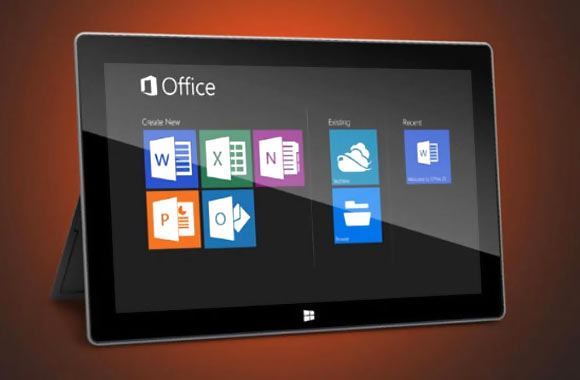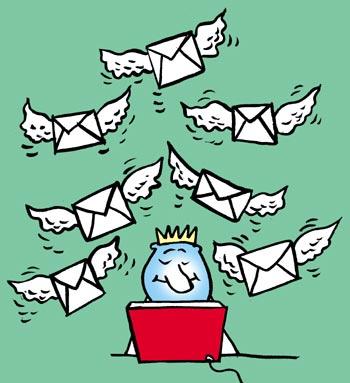 | « Back to article | Print this article |
How to get your first job
Three experts – a company head that recruits freshers, a vice president of a staffing company and a management consultant -- offer their advice on how to get your first job.
Rahul Mishra, co-founder, Data64, a cyber crime investigation and mobile and computer forensics company
'Freshers should be willing to relocate and work long hours'
We recruit 150 to 200 freshers every year, all of them students. We recruit them while they are in college. They join us as cyber crime analytics consultant.
First and foremost we look for communication skills. In campus interviews, we do a free two-day workshop for all the students. We brief them about the kind of work that we do because most students are unaware about cyber crime and mobile and computer forensics.
Our emphasis to start with is on whether they will be able to communicate with us, with clients. If we find these traits it is easy for us to mould them as per our needs.
A lot of companies, and I can speak on behalf of MNCs as well, look for street-smart kids who are adaptable to all sorts of technology and can fit into any kind of role we give them in our offices across Delhi, Mumbai and Hyderabad.
The next thing we look for is how good the person’s technical skills are, based on the workshops that we have done with them.
Freshers should be willing to relocate and willing to work long hours.
One candidate told us we have very long office hours. When you are in your first job you should not throw such attitudes.
In north India, particularly in Punjab, the mindset is a little easy-going. Many candidates prefer not to work long hours. About 25 per cent of the girls who pick up offers are not inclined towards joining.
If you go to Chennai and Kolkata, candidates are comfortable working only in their city and are very reluctant to relocate. They will work for half the package but are not open to relocate.
Kindly click NEXT to read more
How to get your first job
Sangeeta Lala, co-founder and senior vice president, Teamlease
'Knowing Facebook is not enough; you got to know MS Office'
Most important thing is to work on a good CV; it should be short and relevant.
Customise your resume based on the job you are applying for. For example, if you are looking for a sales job, your CV should talk about assignments or projects or internships that you have done which highlight similarities with the sales job you have applied for.
Today, all freshers do some kind of projects or internships somewhere that fits with the job requirement. That will surely get the attention that you want.
It is important for a fresher to knock on as many doors as possible through professors or lecturers or the companies that they interned with when in college.
Get the network effect going, otherwise it is tough to find a job. Through these offline networks you might get useful references that could help you get an interview call.
Third, it is very important to be up-to-date on general knowledge and current affairs, if not in a very global context then at least within the industry or within the location.
If you apply for a bank job, the interviewer will check out your communication skills but will also want to know if you know what is happening in the industry. An interviewer getting an impression that you are aware about what’s happening around you creates a good impression.
Most companies have assessments – a combination of English, communication skills or just general logic. There are free tests online that can help you assess these skills. Freshers should familiarise themselves with these modules.
A fresher should know computers. Basics of Word, Excel, basic formulae - these are very critical for many jobs today. Knowing Facebook is not enough; you got to know MS Office.
Use social networks
While LinkedIn and Facebook can help to find jobs, don’t spam people with job requests. This can tick people off who could help you find a job.
Join various Job groups on LinkedIn to get to know about job openings. If reaching out to specific companies, say a bank or an engineering firm, look for HR personnel or recruiters hiring for those companies and use them for invitation to link up.
You can send an invite saying that you have looked the person up on LinkedIn and send a personalised invite to her/him. Be careful not to write a generic invite saying: I want a job and these are my skills; please accept me.
Instead say, this is X, I looked you up and found some interesting tips from you on a particular forum. I like your ideas and I do have a few ideas that could add some value. I am a fresher but can I have a few minutes of your time and speak with the relevant person.
When you send such invites to ten people, may be only two will revert and ask you what you want from them. It is really about maximising your chances.
If you do all these things, something will work. Not the first time, but you will know for sure that you are on the right track to get a job.
How to get your first job
Pramod Kumar Srivastav, PKS Management Consultants
'Send CV to several recruiters. Two out of ten may respond'
Srivastav divides the plan into a number of sub heads: How to find an opening, how to write a good CV, how to send your CV, how to prepare for the interview and what you must do after the interview is done.
He advises that freshers should look for a job that is in sync with their academic background. They must discover what they have a passion for and look for jobs in that direction.
A fresher should think of him/herself as an executive in the making. That gives her/him the confidence to approach the difficulties involved in finding a job and then actually go about getting one.
How to find job openings:
- Apart from the traditional newspaper ads, social networks these days have become an important source for job information
- Look up LinkedIn and Facebook for job vacancies. Many companies take these routes as a cost effective way to find talent and hire people
- Update your LinkedIn and Facebook profiles with genuine information
- Never post nonsensical comments on social networking sites for recruiters are smart enough to check your public profile on these sites before they call you for an interview
- Send your CV to several recruiters and companies. Two out of ten recruiters may respond to your mails
How to write a CV:
- The first step is preparing a CV. First and foremost do not fudge your CV with wrong information
- Mention internships or part-time jobs you have done while still in college
- Don’t cram your CV with unnecessary information
- Always have a covering letter that talks about your strengths
Prep before the interview:
- Know your company. Research the company well before you face the interview board
- Rehearse with your friends or family the answers to likely questions you will be asked
During the interview:
- Be truthful before the interview board
- Do not fold your CV in an envelope; use a proper folder to present your documents when asked
- Dress properly; present yourself neatly; don’t forget to shave on the day of the interview
- Always maintain eye contact with your interviewer
- Listen properly to the questions asked and answer them honestly
After the interview:
- Drop a line of appreciation to the interviewer for giving a fresher like you an opportunity for the interview
- Maintain contact in a formal way via e-mail; even if you are rejected in this instance, you will always be on top of the interviewer’s mind during the next round of vacancies if you had impressed her/him in the first round


